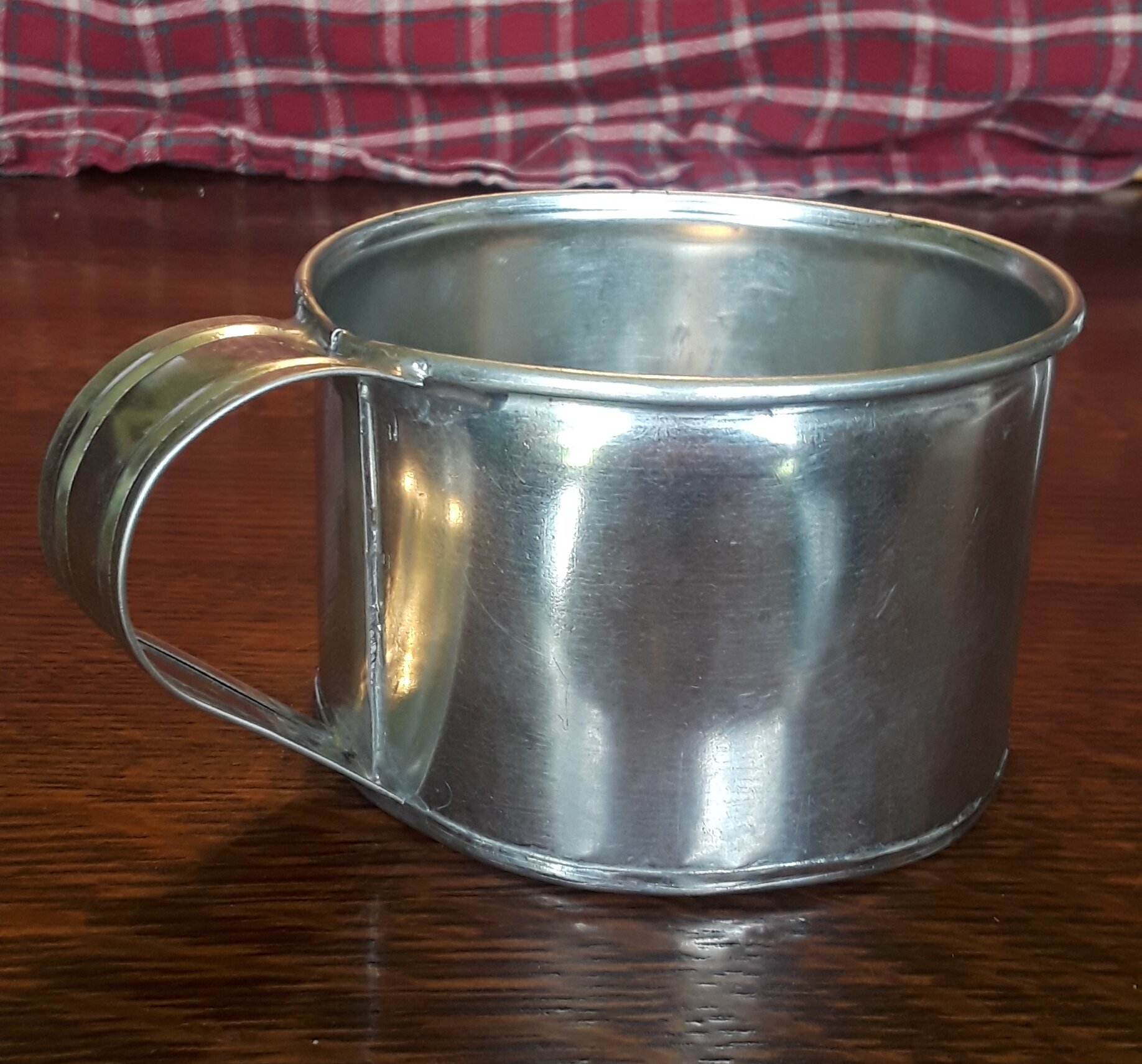 Image 1 of 7
Image 1 of 7

 Image 2 of 7
Image 2 of 7

 Image 3 of 7
Image 3 of 7

 Image 4 of 7
Image 4 of 7

 Image 5 of 7
Image 5 of 7

 Image 6 of 7
Image 6 of 7

 Image 7 of 7
Image 7 of 7








Bertrand Cup
Reproduction of a 19th Century Tin Bowl with a wired top edge. Very sturdy made of tin plate with lead free solder for food safety.
It measures approximately 6 1/2 inches in diameter across the top, 4 1/8 in diameter across the bottom and is 2 inches high. It holds 24 oz (3 cups) of liquid to the rim.
The original bowls were found in the hold of the Steamboat Bertrand that hit a snag in the Missouri River on April 1, 1865, twenty-five miles north of Omaha, Nebraska. Bound for the newly discovered goldfields of Montana from St. Louis, Missouri, the Bertrand began to sink into the Missouri River.
In late 1969, the vessel's cargo was completely excavated from nearly thirty-foot of mud.
My Husband and I had the pleasure to visit the De Soto Wildlife Refuge in June of 2024 where the contents of the Bertrand is on permanent display. We were able to go into the collection and view some of the original cups.
A few things to remember about using tin ware:
If used over a fire, DO NOT LET THE BOWL BOIL DRY! You and it will be much happier if you keep liquid in it while using.
Hand Wash and dry the bowl. DO NOT PUT IN THE DISHWASHER
Less
Reproduction of a 19th Century Tin Bowl with a wired top edge. Very sturdy made of tin plate with lead free solder for food safety.
It measures approximately 6 1/2 inches in diameter across the top, 4 1/8 in diameter across the bottom and is 2 inches high. It holds 24 oz (3 cups) of liquid to the rim.
The original bowls were found in the hold of the Steamboat Bertrand that hit a snag in the Missouri River on April 1, 1865, twenty-five miles north of Omaha, Nebraska. Bound for the newly discovered goldfields of Montana from St. Louis, Missouri, the Bertrand began to sink into the Missouri River.
In late 1969, the vessel's cargo was completely excavated from nearly thirty-foot of mud.
My Husband and I had the pleasure to visit the De Soto Wildlife Refuge in June of 2024 where the contents of the Bertrand is on permanent display. We were able to go into the collection and view some of the original cups.
A few things to remember about using tin ware:
If used over a fire, DO NOT LET THE BOWL BOIL DRY! You and it will be much happier if you keep liquid in it while using.
Hand Wash and dry the bowl. DO NOT PUT IN THE DISHWASHER
Less



















